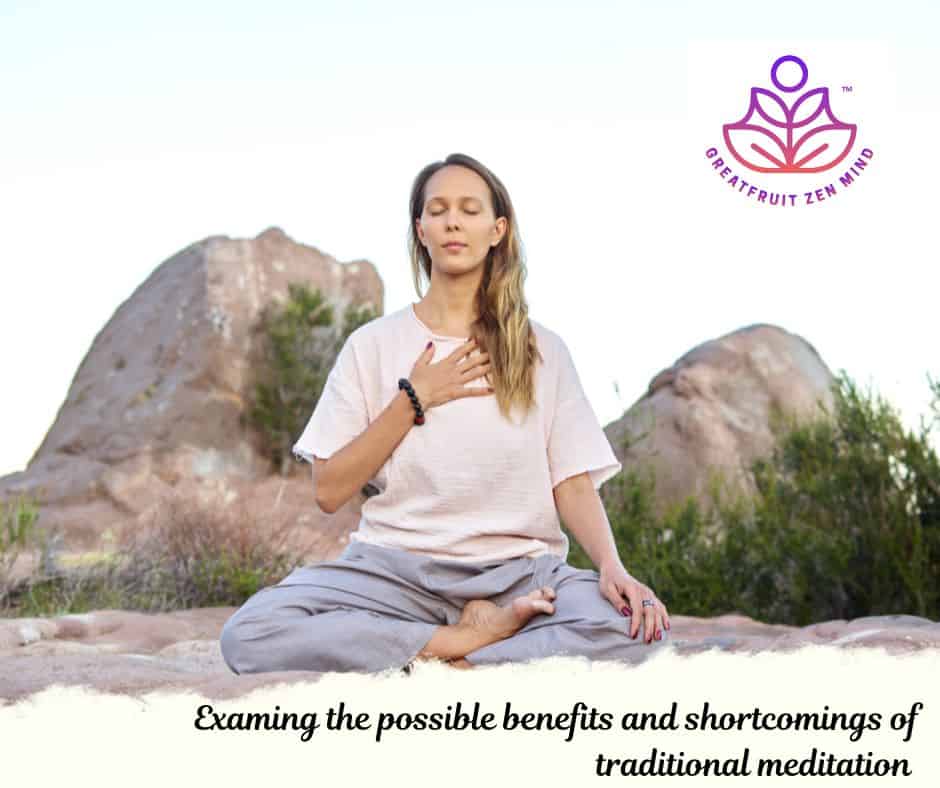Read time 2 minutes. Managing our expectations of meditation. Traditional meditation is a stand alone article in our series regarding mindfulness and meditation.
We won’t be talking about technique today, but about the real value of traditional meditation—and the challenges that inevitably come with it.
When I first began meditating, my expectations were sky-high. I thought traditional meditation was the guaranteed path to lasting peace. Surely, if I logged enough hours, salvation would follow. Each individual session also carried its own weight of expectation. Sometimes I’d feel a warming in the body, a lightness, or surges of energy. Naturally, I began to chase these sensations, believing they were proof that meditation was “working.”
But meditation doesn’t promise consistency. At times the mind is restless and refuses to settle. Other times the body resists in endlessly inventive ways. And when the familiar sensations didn’t show up, I tried to force them—only to feel like the practice had failed.
The truth is simple: meditation often teaches us more through expectation and disappointment than through blissful moments of calm.
The deeper value of traditional meditation
If we approach meditation only as a tool for relaxation, we may be better off taking a nap. But if we come with a spirit of discovery, the practice can be as valuable as anything in life.
We learn to face discomfort. We learn that expectation inevitably meets disappointment. And we discover that both are among our best teachers. The cultural clichés of “blissing out” miss the point entirely. Zen isn’t about snapping into peace—it’s about investigating the nature of restlessness, expectation, and dissatisfaction. Only through honest investigation do we stand a chance of encountering genuine peace.
Considering meditation within the whole
So is traditional meditation worth practicing? I believe yes—if practiced with sincerity and curiosity. But it isn’t the only path. Techniques differ, schools disagree, and one person’s method may not serve another. Honest evaluation of our own experience is itself great practice.
Ultimately, I’m wary of anyone who insists theirs is the only way. We each need to explore, test, and discover what actually works for us. Meditation, taken seriously, is not about clinging to bliss but about opening to truth. And in that, it remains one of our most valuable teachers.
Explore more:
In his book “Our Pristine Mind,” Orgyen Chowang clearly describes a meditation technique that I found particularly challenging, rewarding and adaptable to everyday life. For more information on his book and his teachings visit the Pristine Mind website.
Choose your own adventure:
- 📖 Full Article: Kool-Aid Man Is Not-Not Zen →
- 🍉 About Us: Watermelon Soup For The Soul →
- ⚓️ Go Deeper: The Undercurrent Signup →
- 🛍️ Shop Around: Visit the GZM Store →
- 🦋 Do Nothing, See What Happens: Mini Practice→
- 🌀 Linger: Go to Homepage →
- 🔁 Follow Along:
🌀 From the GZM Archives – Polished, Preserved, Still Relevant.


Leave a Reply